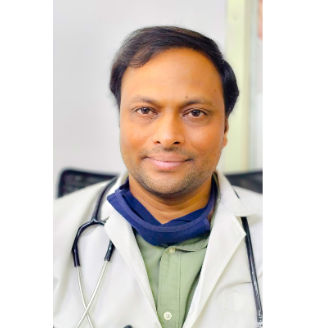Lungs Transplant Success Rate Overview
Considering a lung transplant? Learn about survival rates, key factors that affect success, and how to care for yourself post-surgery to improve long-term outcomes.

Written by Dr. Vasanthasree Nair
Reviewed by Dr. Dhankecha Mayank Dineshbhai MBBS
Last updated on 22nd Aug, 2025

If you or a loved one is considering a lung transplant, you likely have many questions about the procedure, its success rate, and what to expect afterward. A lung transplant is a life-saving surgery for people with severe lung diseases, but it’s natural to feel uncertain. This article will guide you through the key aspects of lung transplant success rates, factors affecting outcomes, and how to improve your chances of a healthy recovery.
What Is a Lung Transplant?
A lung transplant is a surgical procedure where a damaged or diseased lung is replaced with a healthy lung from a donor. This is usually recommended for patients with end-stage lung diseases such as:
- Chronic Obstructive Pulmonary Disease (COPD)
- Pulmonary Fibrosis
- Cystic Fibrosis
- Pulmonary Hypertension
- Alpha-1 Antitrypsin Deficiency
When medications and other treatments no longer work, a lung transplant can offer a new lease on life.
Success Rates of Lung Transplants
The success of a lung transplant depends on several factors, including the patient’s overall health, the type of transplant (single or double lung), and post-surgery care. Here’s what the data shows:
1. Survival Rates After Lung Transplant
- 1-year survival rate: Around 85-90% of patients survive the first year after the transplant.
- 5-year survival rate: Approximately 50-60% of patients live for at least five years post-transplant.
- 10-year survival rate: About 30-40% of recipients survive beyond ten years.
These numbers may vary based on the patient’s age, underlying condition, and adherence to post-transplant care.
2. Factors Affecting Success Rates
Several factors influence how well a patient recovers after a lung transplant:
- Age: Younger patients (under 65) generally have better outcomes.
- Overall Health: Patients without other major health issues (like heart disease or diabetes) tend to recover better.
- Type of Transplant: Double lung transplants often have higher success rates than single lung transplants.
- Donor Match: A well-matched donor lung reduces the risk of rejection.
- Post-Transplant Care: Strict adherence to medications and follow-up visits is crucial.
Consult Top Specialists
What to Expect After a Lung Transplant
Recovery after a lung transplant requires lifelong care. Here’s what patients can expect:
1. Hospital Stay & Early Recovery
- Patients usually stay in the hospital for 2-3 weeks after surgery.
- The first few months involve frequent check-ups to monitor lung function and detect any signs of rejection.
2. Medications (Immunosuppressants)
- To prevent the body from rejecting the new lung, patients must take immunosuppressant drugs for life.
- These medications can have side effects, such as increased infection risk, so regular health monitoring is essential.
3. Lifestyle Adjustments
- Healthy Diet: Eating nutritious foods helps strengthen immunity.
- Regular Exercise: Light physical activity improves lung function.
- Avoiding Infections: Patients should stay away from sick individuals and maintain good hygiene.
- No Smoking or Alcohol: These can damage the new lungs and interfere with medications.
How to Improve Your Chances of Success
If you’re preparing for a lung transplant, here are some ways to maximize your chances of a successful outcome:
1. Follow Your Doctor’s Advice: Take all prescribed medications on time.
2. Attend All Follow-Up Appointments: Early detection of complications improves recovery.
3. Stay Active (As Permitted): Gentle exercises like walking help maintain lung strength.
4. Eat a Balanced Diet: Focus on fruits, vegetables, lean proteins, and whole grains.
5. Avoid Infections: Get recommended vaccinations and practice good hygiene.
When to Seek Help
After a lung transplant, contact your doctor immediately if you experience:
- Shortness of breath
- Fever or chills
- Persistent cough
- Sudden weight gain (could indicate fluid retention)
- Signs of infection (redness, swelling, or pain at the incision site)
Need Expert Advice?
If you have questions about lung transplants or want to schedule a consultation, you can book an appointment with Apollo24|7’s specialists. Early guidance can make a big difference in your treatment journey.
Conclusion
A lung transplant can significantly improve quality of life for those with severe lung disease. While success rates are encouraging, long-term outcomes depend on careful post-surgery care. If you or a loved one is considering this procedure, consult with a specialist to understand the best options.
Consult Top Specialists
Consult Top Specialists
Dr. Sahana B
General Practitioner
3 Years • MBBS
Koppal
Khushi multi-speciality hospital, Koppal

Dr. Dayanashre N
General Physician
3 Years • MBBS
Bengaluru
PRESTIGE SHANTHINIKETAN - SOCIETY CLINIC, Bengaluru

Dr. Ankitha
Internal Medicine Specialist Diabetologist
6 Years • MD INTERNAL MEDICINE
Bengaluru
Apollo Medical Center, Marathahalli, Bengaluru

Dr. Parwez
General Physician/ Internal Medicine Specialist
10 Years • MBBS, DNB
Ghaziabad
DR PARWEZ CLINIC, Ghaziabad

Dr. Shashikant K
General Practitioner
26 Years • MBBS
Bengaluru
IM WELL CLINIC, Bengaluru
(25+ Patients)
Consult Top Specialists
Dr. Sahana B
General Practitioner
3 Years • MBBS
Koppal
Khushi multi-speciality hospital, Koppal

Dr. Dayanashre N
General Physician
3 Years • MBBS
Bengaluru
PRESTIGE SHANTHINIKETAN - SOCIETY CLINIC, Bengaluru

Dr. Ankitha
Internal Medicine Specialist Diabetologist
6 Years • MD INTERNAL MEDICINE
Bengaluru
Apollo Medical Center, Marathahalli, Bengaluru

Dr. Parwez
General Physician/ Internal Medicine Specialist
10 Years • MBBS, DNB
Ghaziabad
DR PARWEZ CLINIC, Ghaziabad

Dr. Shashikant K
General Practitioner
26 Years • MBBS
Bengaluru
IM WELL CLINIC, Bengaluru
(25+ Patients)